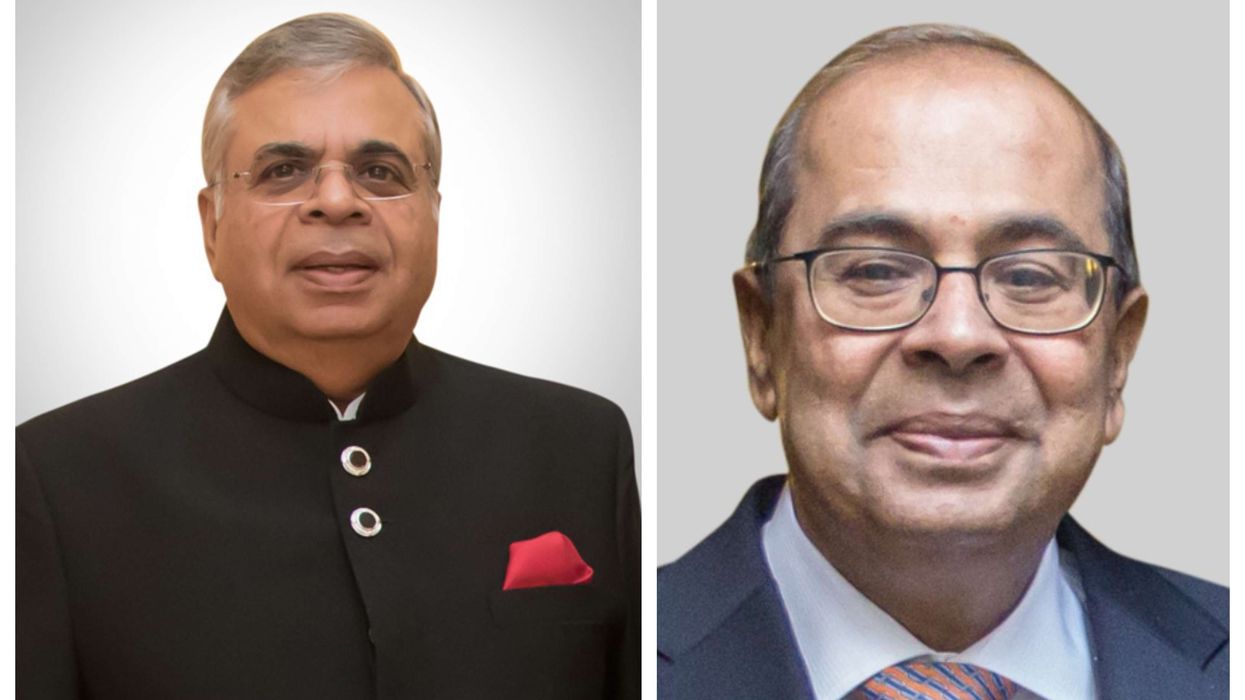DURING the Covid-19 pandemic, BBC broadcaster Reeta Chakrabarti has been the main presenter for numerous Downing Street press briefings on the crisis.
She says getting the facts and tone right were of the utmost importance at the beginning as there was a huge audience. Chakrabarti also reported on the effect the Covid19 crisis had on the Union, and whether it means more devolution to the English regions.
Besides extensive reporting on the pandemic, she also reported on the Black Lives Matter movement, and the renewed attempt in Oxford to take down the statue of the imperialist Cecil Rhodes. Chakrabarti took an active role within the BBC over some of the issues thrown up by the Black Lives Matter movement.
“The past 12 months have been exceptional for everyone, because of Covid19. But during this time, I have reported from around the UK on issues facing voters before the General Election. On Election Night itself, December 12, 2019, I was one of the number-crunchers in the BBC studios, bringing audiences analysis throughout the night,” Chakrabarti tells the GG2 Power List, about her experience last year.
As a frontline broadcaster, Chakrabarti has done a lot of stories about migration and refugees, going three times over 2017-2018 to Bangladesh to report on the Rohingya crisis, including once with prime minister Boris Johnson when he was the foreign secretary.
She also reported extensively on the Mediterranean migrant crisis in 2016-2017, when migrants from Africa were risking their lives, making the dangerous crossing to Europe in flimsy vessels supplied by people smugglers. In 2017, she went to Albania to report on the trafficking of women to the UK.
The same year, Chakrabarti reported on the 70th anniversary of Independence, on August 14, from Lahore, and August 15, from Amritsar, focusing especially on the consequences of Partition. In the UK, she reports on both politics and social affairs, with a particular interest in poverty, social mobility and education.
Born in Ealing, London, to an Indian Bengali family, Chakrabarti was raised in Birmingham.
She also spent time in India as a teenager at the Calcutta International School in Kolkata.
Chakrabarti arrived at the University of Oxford in 1984. She completed a degree in English and French from Exeter College, where she graduated in 1988, and also spent a year in France while a student.
In 1994, Chakrabarti became a reporter for the Breakfast Programme on the newly launched BBC Radio 5 Live. She later became a general news correspondent working on television as well as radio. In 1997, she became the BBC Community Affairs correspondent.
“I have had a long and successful career at the BBC. Although happily there are now more young Asian journalists on the rise, in my time we were few and far between. I am first and foremost a journalist, not an Asian journalist, but I have come to understand that there is a pride in the community at seeing someone Asian at the helm, and that is not to be underestimated. I have worked hard, and been given opportunities to succeed, which I have embraced,” she says.
Chakrabarti is a patron of the Oxford University Media Society and supports the John Schofield Trust, which aims to increase diversity in the industry. She is also a patron of Pan Intercultural Arts, a charity which supports refugees, trafficked women, and marginalised young people.
Besides, she supports BBC Media Action, a charity devoted to public health broadcasting around the world. Chakrabarti is also an ambassador for the Keats Shelley Memorial Association in Rome.







